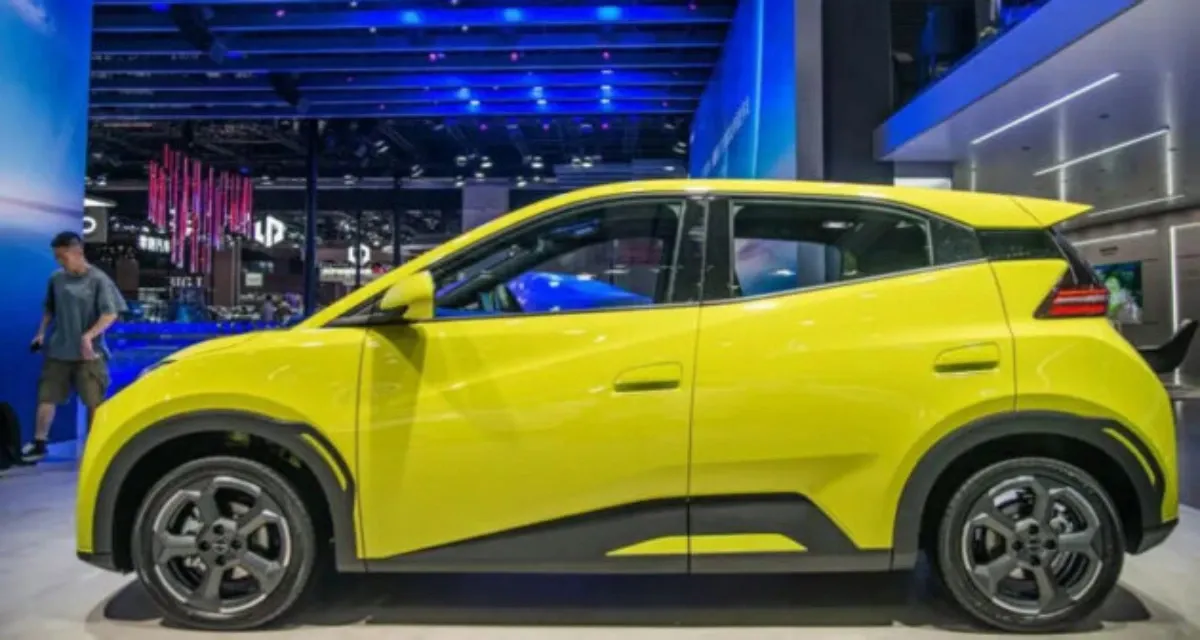

The BYD Seagull, a small and affordable electric vehicle (EV), is creating a stir in the auto industry. In China, it starts at 69,800 yuan ($9,600; £7,500). If it comes to Europe, the price could double due to safety regulations but would still be very affordable by EV standards. This potential influx of cheap Chinese EVs is causing concern among European manufacturers.
China’s auto industry has seen rapid growth over the past 20 years, driven by the "Made In China 2025" strategy, a 10-year industrial policy launched by the Communist Party in 2015. This strategy has fueled the growth of companies like BYD, which now competes with Tesla for the title of the world’s largest EV manufacturer. Other significant players include SAIC, the owner of the MG brand, and Geely, which owns Volvo. In 2023, China sold over eight million electric vehicles, about 60% of the global total, according to the International Energy Agency.
European and US policymakers are worried about the impact of Chinese EVs on their markets. Chinese brands, with surplus capacity, are expanding into international markets. They can keep prices low due to substantial domestic subsidies, making it difficult for other companies to compete. A report by the Swiss bank UBS in September highlighted that Chinese companies like BYD can produce cars at approximately 25% lower cost than other global carmakers. The report suggested that Chinese firms are poised to dominate the global market with high-tech, low-cost EVs.
In the US, the Alliance for American Manufacturing warned that cheap Chinese cars could pose an "extinction-level event" for the US auto industry. They called for urgent action to curb these imports. In response, the Biden administration raised tariffs on Chinese battery-powered car imports from 25% to 100%, a move condemned by Beijing as "naked protectionism." The US is also subsidizing its car industry through tax incentives, making domestically-produced vehicles cheaper.
The EU is also concerned but is taking a more moderate approach. European Commission President Ursula von der Leyen announced an investigation into Chinese imports during her State of the Union address in September 2023. She stated that the global market is flooded with cheaper Chinese electric cars, whose prices are kept artificially low by significant state subsidies, distorting the market.
The initial results of the EU's investigation are expected soon. The European Commission will likely raise duties on EVs imported from China from the standard 10% for third-country imports to between 20% and 25%.
The potential influx of cheap Chinese EVs into the European market could disrupt local manufacturers, who might struggle to compete with the lower prices. The increase in duties on Chinese EV imports is aimed at leveling the playing field, ensuring that European manufacturers are not unfairly disadvantaged by the subsidies that Chinese firms receive. This move reflects a broader trend of protectionist measures as countries seek to safeguard their industries from foreign competition.
In summary, the EU's decision to potentially raise import duties on Chinese EVs reflects concerns about market distortion due to state subsidies in China. As the global EV market evolves, such measures may become increasingly common as regions strive to protect their domestic industries from the competitive pressures of international markets.
Also Read: